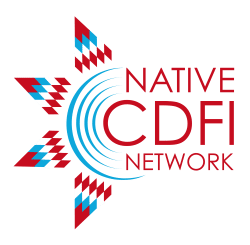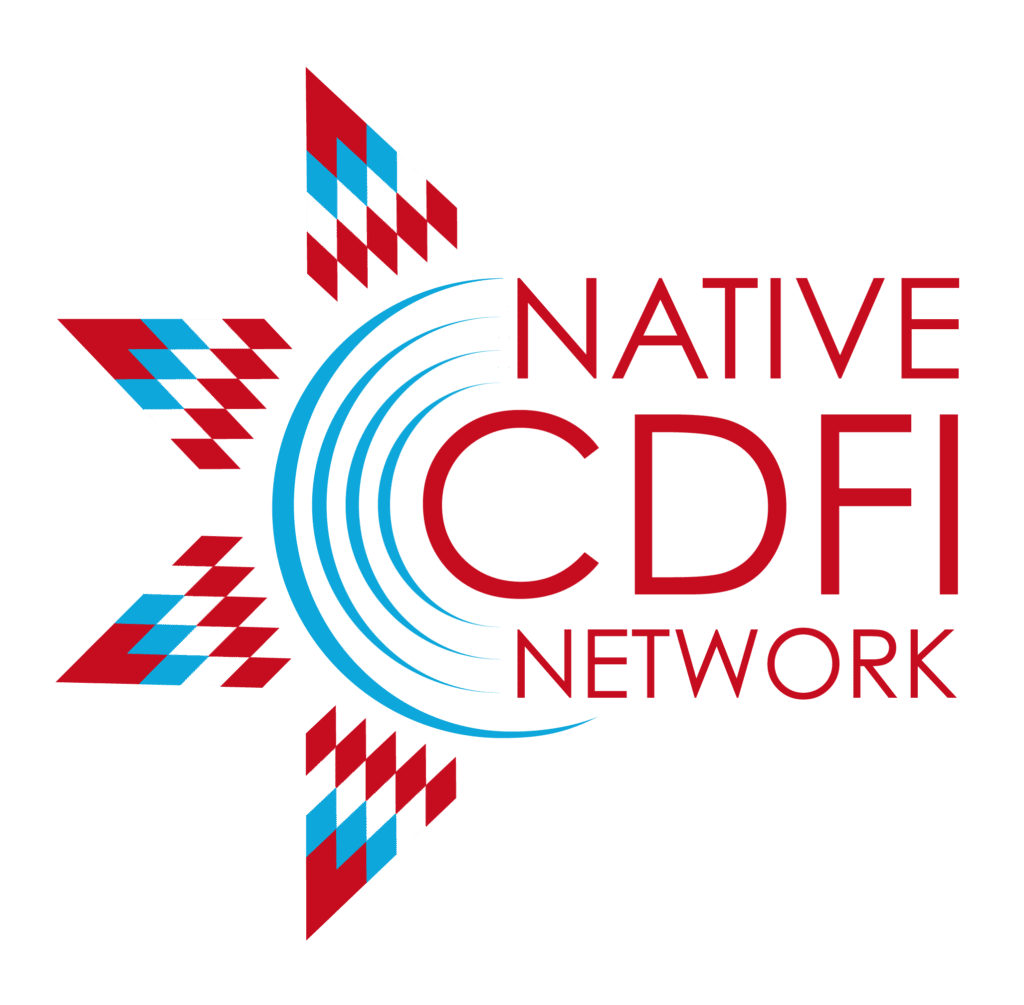The Native CDFI Network (NCN) developed the “Native CDFIs: Difference Makers for Indian Country” interview series to cast a much-needed spotlight on the many positive benefits that Native community development financial institutions (CDFIs) create for tribal communities and the leaders who help make Native CDFIs the transformational success stories they are.
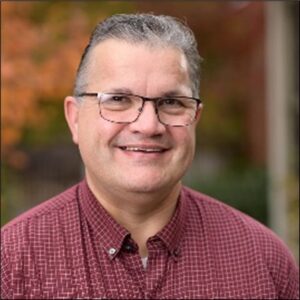
In this first edition of “Difference Makers,” NCN sits down with Christopher Coburn (Muscogee Creek and Cherokee), who has served as CEO of the Mvskoke Fund since 2017. Christopher has spearheaded the Mvskoke Fund’s rapid growth over the past five years as this federally certified Native CDFI has expanded beyond small business lending to now offer agribusiness and consumer loans to Native clients across an 11-county service area in Oklahoma. Christopher has more than 25 years of management experience in various industries, including consumer and commercial banking, higher education, public utilities, and marketing. He also personally has owned and operated two small businesses. In this insightful conversation with NCN, Christopher explains how the Mvskoke Fund has grown through the COVID-19 pandemic, and why he views the CDFI industry as his most rewarding career challenge yet – helping others overcome financial obstacles and achieve their goals.
Welcome, Christopher, and thank you for joining us today.
Christopher Coburn: Thank you for having me.
NCN: So let’s start with you: Why do you do what you do? How did you come to lead the Mvskoke Fund?
Christopher Coburn: Well, it’s how I was raised. You know, I’m a blend. There’s not a Mvskoke word for “blend,” but I am. My great grandparents were a full-blood Cherokee and a full-blood Creek. Schoolteachers, pastors, things like that on that side of the family. Scottish second-generation immigrants, maritime-type people. Father’s side had nothing. Entrepreneurs, always. “Hey, I got to make a buck. We’ve got to eat – figure it out.” I’m the product of that. But also throughout my career, all my jobs have been service oriented. What I’ve seen as both a working professional and a business person is “How could I honor the legacy of my ancestors? Of giving and doing?” The original entrepreneurs were Native Americans in my opinion. So how can I teach that? Well, I’m 50. All my parents and grandparents are dead. When I walk around our campus and I see a little old lady or a little old man and have a five-minute conversation with them, I feel like I’m honoring them. I’m living the values they put into me and we’re making a difference for the world. And to me, that honors our Creator and that honors our purpose. That’s why I do what I do.
NCN: There are more than 70 federally certified Native CDFIs, across the country, and many more “emerging” CDFIs following in their footsteps. Why did tribal nations and communities feel it necessary to create CDFIs, and what fundamental role do they play?
“We are teaching people to get what they want, and how to have pride in getting that, with financial vehicles and technical assistance to make that possible.”
Christopher Coburn: From a tribal perspective, it’s a matter of leveling the playing field. I think redlining originally was with red people, as far as locking certain people out of opportunities. There’s a lack of respect paid to a Native individual that’s suffering when they go to any type of organization for help. So if someone’s had a bad experience, a medical issue, some kind of catastrophe that causes a cascading effect to their credit or whatever else, they’re not treated as human or equal. It’s all volume-based at most commercial banks and even a lot of larger credit unions, where it’s not person-based. The biggest thing that’s different about Native American culture is we value the person. Every person is designed to have value. I think what is so transformative about CDFIs in the Native American culture is we’re helping them better themselves. It’s not an entitlement program. It’s an empowerment and lifestyle program, teaching them tools to compete in an economy that none of us designed. We are teaching people to get what they want, and how to have pride in getting that, with financial vehicles and technical assistance to make that possible.
NCN: From your perspective, what should policymakers and the general public understand about Native CDFIs and the difference they make?
Christopher Coburn: Policymakers, people on Capitol Hill, and others hear so many acronyms they get numb. Community development is the first half – the “CD” part. “FI,” or financial institution, is the second part. Both are equal and complementary in purpose. So we exist to serve the community, to help them develop opportunities, to help them develop as individuals, to help them get resources to better their lives. And through that we do technical assistance and coaching and training and creating opportunity, but we’re also very much a financial institution. So how do you balance the financial need to perform well with high-risk activities that shift people in the credit market from disparaged or damaged credit and no credit to creating opportunities for them? It’s a balance.
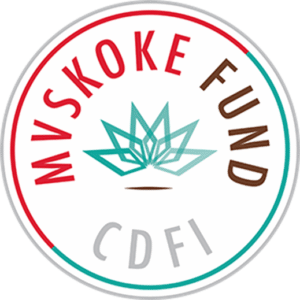
Christopher Coburn: We were created in 2013 and [federally] certified at the end of 2014. I took over in 2017 and it was basically a reboot. I brought in a banking mindset. For us to do as much good as we can with what we’ve got, we’ve got to be good financial stewards, and we need to bring a product to market that the clients need. And if clients aren’t prepared for it yet, we need to help train them and help them be ready to be prepared for it and leverage that to succeed. Crazy thing is on the financial side, if they’re trained well and they’re excited and they’re in the market, they’re doing what they want to do, it’s not hard to pay us back. And then we make that little bit of margin on our lending products that we turn around and reinvest back into us. So we’re a net nonprofit, but I don’t have a nonprofit mentality, I have a service mentality. We’re training, we’re services and lending. We have a training culture – we’re always learning. We provide services, so we’ll do technical assistance at no cost. And we do lending. But we do all that so we make good loans to make maximum impact, to create more money for our clients and for the organization to grow to serve more people.
We started as a small business microenterprise lender, which is $50,000 or less. We still consider that our bread and butter. But we’re now in agribusiness, and we’re edging our way into consumer lending. Tons of payday lending and predatory lending in our area for cars, for small loans. We’re trying to break that cycle, and some of that’s generational. And then about 20 percent of our clients still aren’t banked at all. So there are check-cashing fees and other things. There’s a lot of cultural and systemic things to break up.
NCN: How do you see the Mvskoke Fund continuing to grow?
Christopher Coburn: Our goal here is maybe in another two or three years to start a credit union or a bank. So we will be full service, from low end to normal – cars and houses and stuff. It’s a mindset shift. We need to deal with the capacity of the individual to compete in the marketplace. The crazy thing is many people don’t understand what a tribal economy is. A big tribal government buys thousands and thousands of whatever – widgets. Well, one tribal citizen has a company that can make hundreds of widgets, and if you just work with them, they could keep that money in the community, in the tribe. And then they could hire others to do more widgets. But there’s steps in between the thousands and the hundreds that people aren’t willing to take. So Mvskoke Fund works a lot with our own clients. If we sponsor a training, we’ve got four or five restaurants and several food trucks among our clients. Who am I going to hire for the food that day? I’m going to hire one of my loan clients and then when they start serving the food, I’ll ask them to speak for five minutes on what are they trying to do for their family and their community. That’s a tribal economy.
NCN: Your CDFI supports tribal citizens from all walks of life in various ways. Can you share with us an inspiring success story of a client you work with?
Christopher Coburn: We had a client and he had a dream of having a business and he could not get a loan because he couldn’t even get a [driver’s] license. He had a marriage fall apart, dependency issues within the family. He got out of that, had a lot of legal fees with an area out of state. He decided to move back home to the reservation, got back involved with the ceremonial grounds in his community and his culture. He got some men that cared about him around him and steered him the right way. When I first met him five years ago, he was sober and he was riding a motorized bicycle everywhere in a town of 12,000 people. He wanted a business loan. We couldn’t do that because you can’t buy vehicles and things like that because you need a license, you need insurance. So we designed our first pilot of a consumer loan to help him clean up his legal fees and get all of those things taken care of in that other state so he eventually could get an Oklahoma license. That was the first loan. It did not make financial sense, but we had done well enough in other areas that we were willing to take those risks that a bank wouldn’t take. He did what he should. He didn’t get just one job, he got two jobs. He got an apartment, got promoted several times, and eventually when he did get his license, for two years he had to have a breathalyzer on his car to start it. We helped him get all of that. Well, then when he was close to paying off that initial loan that nobody else would have made, he came back to us with the same idea. So we put him through a management class, a QuickBooks class, a few other things. About 18 months ago, we did the full business loan he originally wanted – a pickup truck, trailer, zero-turn lawnmower, chainsaws, weed-eaters, the whole bit. He’s still keeping his day job, and he’s building that [landscaping] business on the side to make a future for him and his family.
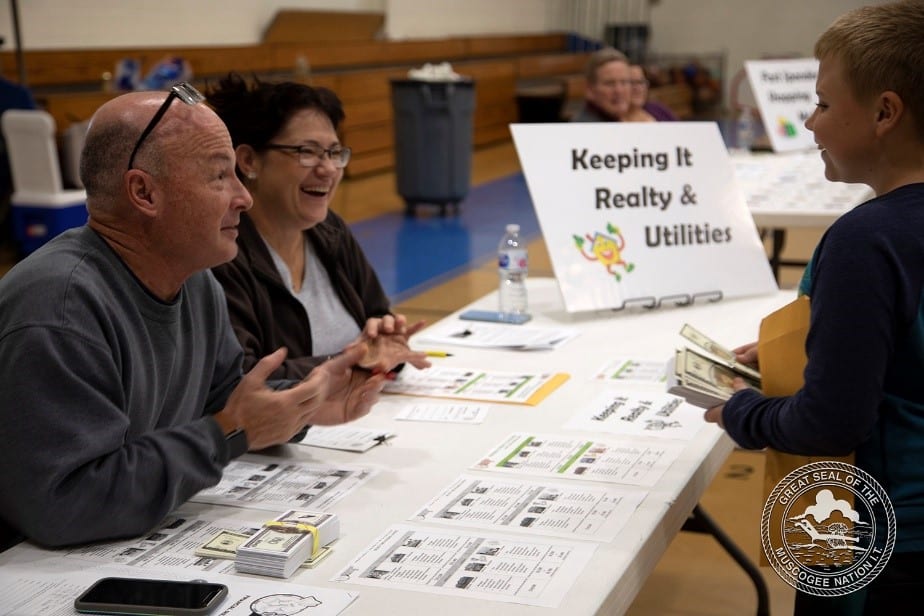
NCN: The Native CDFI Network recently published a report documenting the extraordinary difference Native CDFIs have made in helping Indian Country respond to and recover from the COVID-19 pandemic. How did the Mvskoke Fund shift gears to address the pandemic?
Christopher Coburn: We doubled our lending volume from the previous year, and we were on the phone with tribal citizens from around the country trying to point them to PPP [Paycheck Protection Program] lenders and helping them figure all that out. We got no revenue from that – they were just trying to survive. So we really got noticed more within our giant tribe of 90,000-plus members by us going the extra mile. We doubled our volume in lending, and then we about tripled our volume in online TA [technical assistance]. And guess what? That’s only picked up, and we’re still just the same four staff.
NCN: Mvskoke Fund recently launched a business incubator of sorts. Tell us more?
Christopher Coburn: We are not a full-scale incubator like an industrial park. What we’ve had is clients that are struggling, and they got a 15-year-old computer or something else, and they just need a space with computers and other things where we can work alongside them. We’re making a space at our home for our clients to come and get help as they need it, kind of like a study hall with professors that are right around the corner. In essence, that’s our version of an incubator because that’s what our clients need.
We also needed a space we controlled where we could have lots of classes, so we’ve got a space under our nonprofit umbrella that’s dedicated towards training, and our three focus areas are going to be small business, agribusiness, and consumer. We’re going to tackle those socioeconomic issues and we’re going to train as much as we can. It’s sort of the “Field of Dreams” thing. We know they’ll come because we’ve got a giant tribe and lots of people. We serve 11 of 77 counties in Oklahoma, including most of metro Tulsa, and any other Native American, Native Hawaiian, Alaska Native, we’ll help them, too. Our pipeline is not going to ever disappear. I don’t have to market to them. What I have to market is our success stories so that funders jump in and we can keep scaling it up.
NCN: From your perspective, what do Native CDFIs need to realize their full potential? What support do they need to achieve their missions and maximize their impact?
Christopher Coburn: I think it’s different for different CDFIs. Early on, I couldn’t get grant capital to save my life. Now I’m able to get grant capital for TA and some lending products. My big need is CRA [Community Reinvestment Act]-type direct investment. I can’t keep up with serving as many people as we need to serve with the staff size I’ve got. We need to accelerate our growth to catch up to the pipeline. I would really love some foundation or some bank to do some direct investment and say, “Hey, we would like to donate X,” or “Hey, we’ll do like some of the federal programs, we’ll lend you half a million for 30 years at one or two percent for operations.” Because I can generate revenue from activity that can go toward operations, but it’s a fraction of a point. I can’t scale up fast enough to take care of who I need to without an injection of patient capital that believes in what we do. It’s the foundation side, the CRA side for banks – the belief in what we do. We need some angel investors so that we can have enough cash to operate from. Right now, we’re just moving money as fast as we can and doing what we can and we’re doing it well.
To learn more about Christopher Coburn and the Mvskoke Fund, please visit https://mvskokefund.com/
